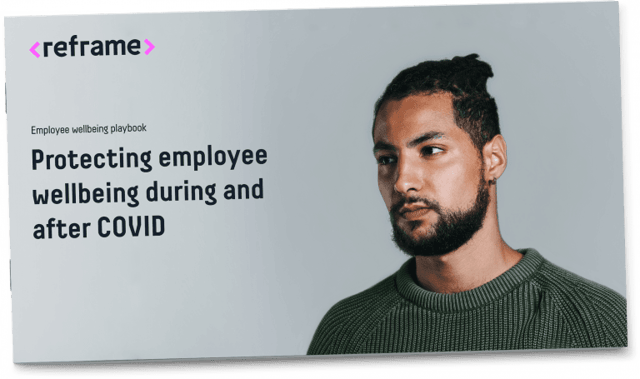Mental health continues to rise up the agenda for business leaders with COVID-19 accelerating the rise in work-related employee mental health issues. Many businesses reacted to lockdown 1.0 as the situation unfolded, with perhaps a few getting to the root of the challenges by reviewing their wellbeing strategy, employee benefits and workplace policies to better support their employees.
With the nation now in lockdown 3.0 – and potential sight of the finish line – businesses must be more prepared than ever to deal with workplace burnout following a steep rise in online searches for burnout symptoms.
Is the new way of working good for our mental health?
For many, homeworking offers new levels of comfort along with no commute, however it has left others struggling – physically, mentally, and emotionally. According to Wade Macdonald, 28% of employees say that their mental health has declined as a result of COVID-19.
Furthermore, last year we surveyed 2000 employees and found that 47% of them felt uncomfortable disclosing health concerns to their employer. However, our latest survey (to be published in January) sees this reduce to 22% – with employees working in larger companies or under 35 the least likely to discuss their health at work. This not only demonstrates the importance placed on mental health in the workplace, but the progress businesses have made on providing the right support and environment.
To ensure your approach is relevant and effective, continued review and adjustments will be required as the new way of working becomes the norm. Where possible, look to reinvest the savings from the reduced cost of premises into employee wellbeing to sustain levels of engagement and productivity.
Tips for supporting mental health at work
1: Mental health ambassadors
Mental health ambassadors or mental health first aiders enable employees to discuss sensitive issues which they may feel uncomfortable bringing up with other colleagues. They are well placed to be proactive among employees, communicating the availability of resources and connecting individuals to the support they need.
Mental health ambassadors can help employees negotiate the boundaries that exist between personal and working life. They can put people at ease by offering non-judgmental advice and a sense of perspective, be ready to listen and educate.
Among today’s remote workforce, businesses have a critical role in recognising the signs when an employees’ wellbeing is negatively impacted and responding appropriately. Line managers, mental health ambassadors and colleagues can all be encouraged to identify the signs, for example stress, low mood, anxiety and not feeling optimistic about life in general.
2: Whole-life balance
Life is not comprised of just work and home life. It also includes other aspects such as: ones physical and mental health, family, recreation, life planning and spirituality. When it comes to health and wellbeing in the workplace, the last 10 months have demonstrated the importance of recognising and supporting employee’s wider wellbeing needs.
Working from home has blurred the lines between work and play for most of us. The convenience and lack of commute or set routine has made it far too easy for people to work longer hours and skip their usual breaks.
Some companies allowed employees to carry over their annual leave as a result of spending most of 2020 stuck at home. The impacts of COVID will be long-lasting and it’s not healthy or productive for employees to not recharge throughout year. Encouraging them to use their holiday allowance each year – even if they’re not going away – will help companies foster a high-performing culture and better whole-life balance.
3: Employee engagement
Employees feel like they spend more time in meetings that then did in the office – often back to back with less time to refocus or get the job done. Individuals’ mindset and resilience will be tested more than the previous lockdown, therefore it’s vital that companies continue (if not enhance) their efforts to boost employee engagement.
It’s about striking the right balance – minimising the number of check-in calls while keeping communication channels open. Remote working can make it more difficult for businesses to maintain the same level of community. Sharing company updates and celebrating milestones, rewarding teams and even hosting social events such as celebrating birthdays or organising a book club or virtual escape room, can help to maintain a level of normality.
For most employees, the home environment is not equipped for work. Despite most companies making adjustments to fix this in lockdown 1.0, it is impossible to resolve this for everyone given the challenges with childcare and caring. Not all employees can motivate themselves or concentrate with distractions in the background. To help engage and incentivise them through this long slog, it’s important that good intentions or initiatives don’t go stagnant.
Worryingly, mental health remains a taboo in some workplaces. While lockdown 3.0 presents yet more challenges for companies and individuals, it also offers businesses the opportunity to go the extra mile for their employees, particularly for those who are more vulnerable. The pandemic has left millions balancing their jobs with childcare, supporting their family, and looking after vulnerable relatives. It’s essential for employers to understand, accelerate and normalise the trends.

